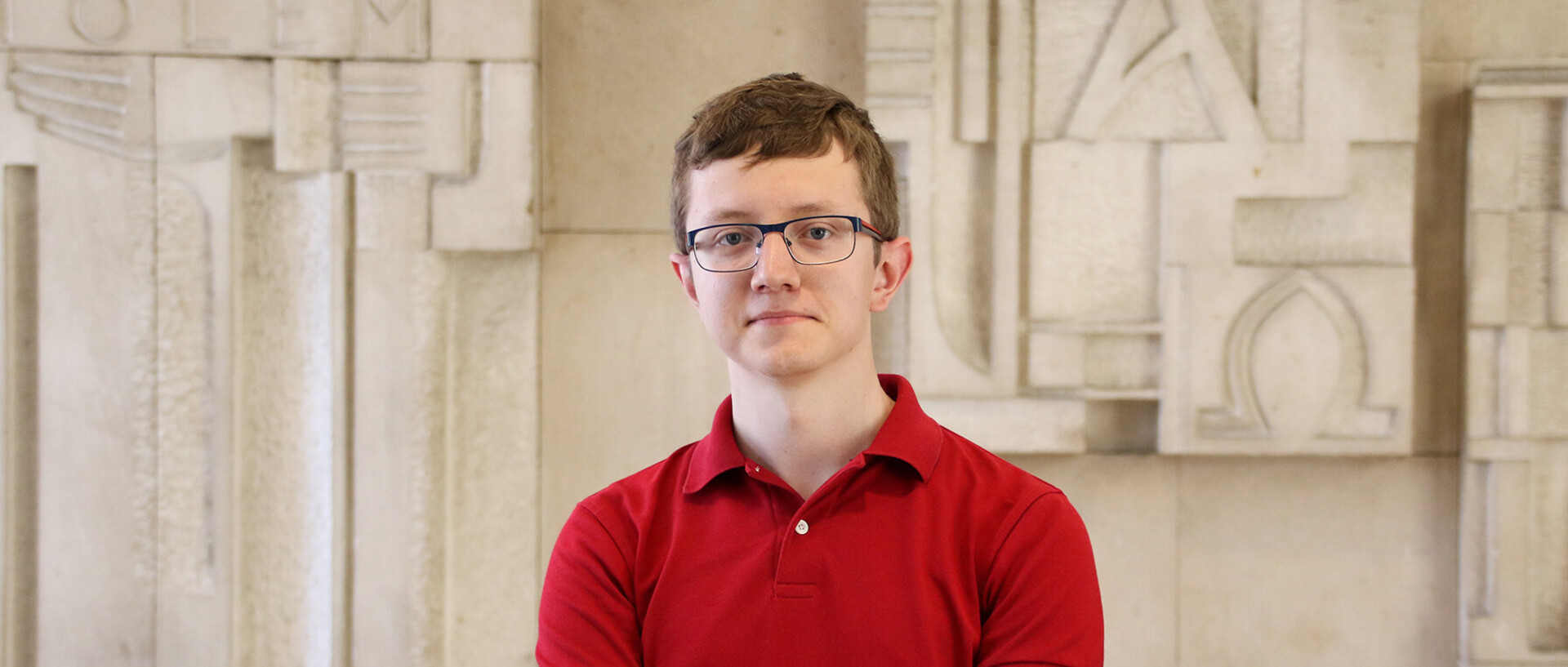“Studying abroad makes you grow as a person”
Artem Zverkovskiy comes from Yuzhno-Sakhalinsk, a town on the Russian island of Sakhalin, which is just north of Japan. He completed his bachelor's degree in Moscow and came to Germany two years ago. The 22-year-old is now in his final semester of the master’s program in Business Informatics at the University of Mannheim. In his myUniMA story, Artem shares his experiences of living in Mannheim.
Why did you decide to get your master’s degree in Germany?
I think there are a few countries that are the best when it comes to Business Informatics: Russia, England, the USA, and Germany. I decided to study in Germany as it is the most affordable option, it isn’t too far from Russia, and I can learn another language. The University of Mannheim is one of the best in Germany for my subject, and that’s why I decided to study here.
What are the biggest differences between studying in Germany and in Russia?
Studying in Russia is completely different to studying in Germany. In Russia, you are expected to understand the material. You don’t have to memorize all of the information; you just have to be able to explain the content to somebody else. Whereas in Germany, you have to learn each definition by heart. But that’s also the good thing about studying in two countries with completely different expectations. I wasn’t used to memorizing information, but I had to learn this way here and now I find it a lot easier. After graduation, I would like to become a specialist in machine learning. In this area, you have to know a lot about programming languages, which you can only really use if you have learned them by heart.
Are you active in any student organizations or programs at the university in your free time?
Yes, the university has a program where you can become a buddy for other international students. I still remember arriving in Mannheim and walking out of the main station. You see the city but don’t really know where anything is or where you need to go. I think it’s great that the university has a program like this. It gives you the chance to help new students overcome any initial difficulties. When I first arrived, I had a buddy from Bolivia who really helped me during my first few weeks at the university.
You mentioned that you’re a co-founder of the Kursomir project. What kind of project is that?
Kursomir is an online project through which lectures from leading universities, such as MIT or Stanford, are translated into Russian. It is a voluntary project and people from all over the world are involved. I read about the idea for the project here in Germany and decided to help develop it. It’s easier to integrate these projects into everyday life here in Germany. I was impressed to see how many Russian speakers there are around the world.
What has been the best and the worst thing about living in Mannheim?
The worst thing is that you don’t tend to know the law in a foreign country very well. For example, I once provided my name and address to receive a free copy of a magazine. I didn’t realize I had subscribed to the magazine, and in the end, I had to pay a lot of money because I didn’t cancel the subscription. In Germany, you really have to make sure you read the small print. But things like that are all part of living abroad. The best thing is the people. The University of Mannheim really is an international university and I have met people from countries that are far away from Germany and Europe, like Bolivia, Canada and Brazil. It’s great that you can meet different people here, and learn more about the varied cultures of your fellow students.
Can you imagine staying in Germany and working here?
I can imagine working in Germany for a while. I currently work at SAP, like almost all of the students studying Business Informatics. Working in Germany is totally different to working in Russia. In Russia, you have a specific task to complete. In Germany, you tend to be a member of a team, and have to complete different tasks as a team. I would also like to work for an American company one day.
Is returning to Russia your long-term goal?
Yes, I would like to return to Russia in the long term as I really like it there. I like Germany too and the nature here, but you have a lot more freedom in Russia. For example, you can just go outside and catch fish there, whereas in Germany you need a license for almost everything.
You’ve almost finished you master’s degree here. How do you feel now about your decision to study in Germany?
Many people use the Internet to try to find out as much about a country as possible. Although you can find helpful and correct information, it isn’t really comparable with actually living in another country. You have to see and experience Germany for yourself, and maybe even get into difficulties like I did with the magazine subscription. That way, you learn more about the people and their culture than you can ever read about online. I think that anyone who has the opportunity to study abroad should definitely do it. You really develop as a person and constantly face new challenges. I found it easy to settle in here but of course, you have to deal with challenging situations that can make you grow.
Interview: Lena Trumpfheller
